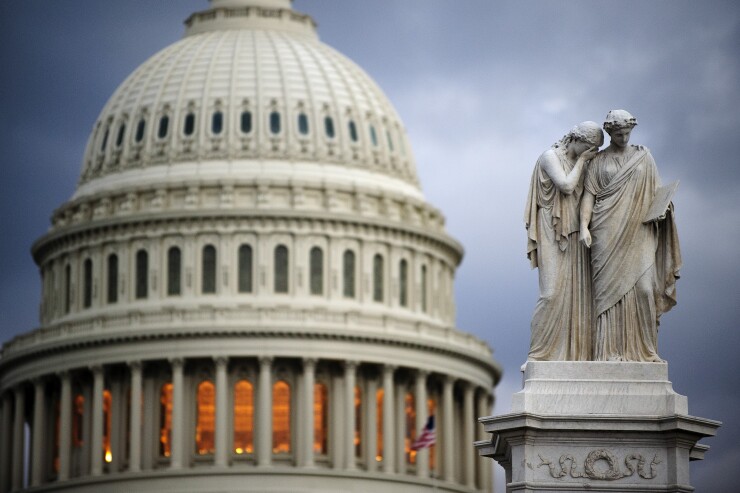
In the midst of tense negotiations on Capitol Hill over a funding bill to avert another government shutdown, industry groups appear to be coming together around a strategy to delay -- and potentially derail -- the Labor Department's contentious fiduciary proposal.
There are a variety of avenues that lawmakers could take in an omnibus government spending bill to block the DoL's proposal, which has drawn nearly universal criticism from Republicans and raised concerns among many Democrats, as well.
At this point, it appears that the most likely tactic would be to attach a rider to the bill that would compel the Labor Department to publicly respond to the voluminous body of comments that it has collected on the proposal, and then to hold a second round of comments before moving to a final regulation.
That would force the DoL "to show its work," says one industry lobbyist, chiding the department for a lack of transparency in developing the rule and calling the process "one-sided."
A spokesman for the Labor Department did not immediately respond to a request for comment, but officials have countered that the fiduciary rulemaking has been far more collaborative than critics allow, pointing to the scores of meetings they have held with stakeholders on all sides of the debate, as well as
Some lawmakers have proposed a blunter instrument to block the DoL's proposal in the form of a rider that would simply bar the department from using its congressional appropriation to advance the rule, but that proposal appears unlikely to have the political support to survive the negotiations and make it to a final funding bill.
Lawmakers are working under a Friday deadline to keep the government funded. As negotiations are mired in hot-button issues like funding Planned Parenthood and setting a policy for Syrian refugees, prospects have dimmed for an agreement on an omnibus bill ahead of that deadline. To avoid a shutdown, then, lawmakers would need to pass a continuing resolution and return to the negotiating table as the holiday break approaches.
A separate path to blocking the DoL's proposal comes from a bipartisan group of lawmakers who have been developing legislation that would establish a new set of fiduciary requirements that would include an enforceable standard for advisors to act in the best interest of their clients, but would include provisions that are more favorable to the industry than the DoL rule, including language specifically affirming that consumers should have access to a full range of products and services.
Opponents of the DoL's fiduciary regulation say it would limit access to advice for lower- and middle-income investors by effectively barring the commission model, a claim fiduciary advocates and the department flatly deny.
The fate of that proposal is far from clear. A spokesman for the House Education and Workforce committee confirms that the lawmakers hope to introduce their bill before the holiday break, but declined to comment on whether they will seek to incorporate it into the omnibus legislation.
Consumer advocates who have been pressing for a stronger fiduciary standard have rejected the principles-based framework the lawmakers have unveiled as the basis of their bill. Politically, however, the rider compelling the Labor Department to initiate a second round of comments seems like the easier sell to Democrats who have been generally supportive of the goal to protect against conflicted advice, but have lingering concerns about the specifics of the proposal and the potential to reduce access to financial guidance for the consumers who need it most.
Opening another round of administrative proceedings, accompanied by the intense political pressure that has characterized the department's fiduciary work from the outset, could effectively quash the entire initiative, warns Marilyn Mohrman-Gillis, managing director of public policy and communications at the CFP Board.
"While this sounds like it's harmless, it is in fact a strategy to run out the clock on the ability of this administration to reach a final rule," she says.
Read more:





